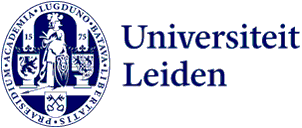
How smart cities gain legitimacy and trust
A smart city is of no use if its residents don’t trust it. Tanaquil Arduin, Chief Data Officer at the Municipality of The Hague, and Bram Klievink, Professor of Digitalisation and Public Policy at Leiden University, explain how this can be avoided – to some extent. ‘Make sure civil servants and residents can have a good conversation.’
Tanaquil Arduin became one of the first Chief Data Officers in the public sector in 2019. What problems does she think data and smart technology can solve? ‘Mainly to gain insight into social issues. They can help you determine where best to use your limited capacity: limited numbers of community support officers, neighbourhood managers or desk staff, for instance. Making roads and intersections safer can be done in a more targeted way when based on data and technology. Data on road traffic, the weather, possible events or building work and whether cyclists and schoolchildren in particular need to use a lane makes it easier for us to assess whether the risk of an accident is increasing or decreasing.’
Road safety algorithm
What if residents are concerned about road safety? ‘We can’t address everything at once. Such a system can tell us which intersection has the highest priority and what we should pay particular attention to. We can also explain to residents why one intersection is being addressed and not another.’ Another algorithm uses demographic data (so no personal data) to predict per neighbourhood whether more or less social support will be used in the next five years.
The Hague has 26 algorithms in total that play a role in the city. It wants to be open about these. ‘We have made the Dit doet Den Haag met data video and podcast series’, says Arduin. According to YouTube the videos have been watched several hundred to a thousand times. ‘And the Dutch government’s Algorithm Register was launched last year.’ The Hague already describes all 26 algorithms there: what they do and why, whether they are self-learning or rule-based and what data they use. It may not be in plain language that would help as many people as possible understand it but it does give an overview. Bram Klievink compliments Arduin, ‘The Hague is leading the way in completing the register.’
Trust in government
But with these algorithms, the human touch can disappear at times, witness the child benefits scandal. The Tax and Customs Administration relatively frequently labelled people with an ethnic background as potential fraudsters. A good relationship between the government and the public is based on trust. Bram Klievink has conducted and is familiar with a lot of research on this. ‘Openness about data and technology use has at most a small effect on public trust. Trust in government develops in a larger, cyclical pattern. Municipalities can’t do anything about this, but the risk of mistrust is high. Mistakes that betray trust are widely publicised.’
‘For the government, trust is something external that you have little influence on. Internally, you do have to constantly ask yourself if you are trustworthy’
‘Most citizens have little to do with the government’, says Klievink. ‘What they do – tax returns, applying for a passport – generally goes well. A lot also goes wrong and that often affects vulnerable people. If the government makes those few transactions of mine work that bit better or distributes the Wmo [Wet maatschappelijke ondersteuning; Social Support Act, ed.] better, I won’t notice. But it’s valuable nonetheless.
‘Trust in government is something external that you have little influence on’, Klievink continues. ‘Internally you do have to constantly ask yourself if you are trustworthy. Governments have power and have to use this legitimately. This means constantly evaluating whether the benefits of data use or tracking data for safety or cost savings, for example, are proportional to the costs or a possible breach of privacy. The values have to be in balance.’
The full article previously appeared on the website of Leiden-Delft-Erasmus Universities, a partnership between the three universities in South Holland. The article was published within the scope of the Smart Cities white paper that will be published in June.
Text: Rianne Lindhout
Photos: Gerd Altmann / pixabay.com
